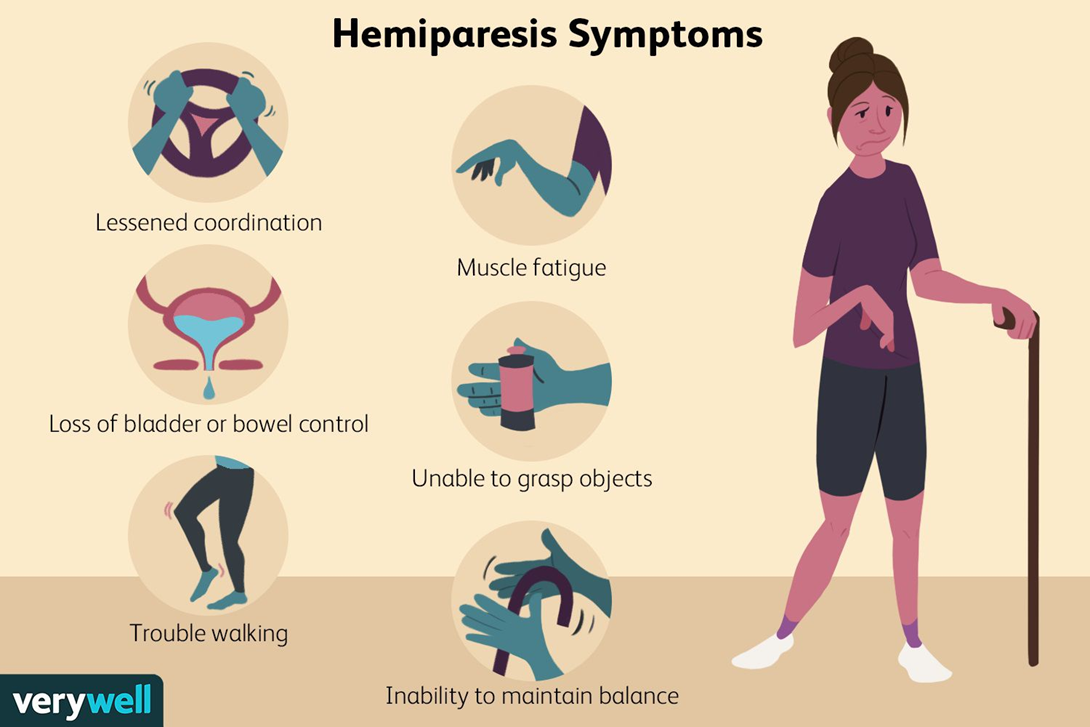A nurse in the emergency department is assessing a young adult client who was administered a hypotonic IV fluid bolus for rehydration after collapsing at an athletic event. Which of the following findings indicates the client is experiencing water intoxication?
Hypernatremia
Weak pulses
Muscle weakness
Exaggerated reflexes
The Correct Answer is C
Choice A reason: Hypernatremia is not a sign of water intoxication, but rather the opposite condition. Hypernatremia means high sodium levels in the blood, which can occur when the body loses more water than sodium, such as in dehydration, diabetes insipidus, or excessive salt intake. Water intoxication causes hyponatremia, which means low sodium levels in the blood, due to excessive water intake or retention.
Choice B reason: Weak pulses are not a specific sign of water intoxication, but rather a general sign of poor perfusion or circulation. Weak pulses can have many causes, such as hypotension, shock, heart failure, or peripheral vascular disease. Water intoxication can cause hypotension, but it can also cause hypertension, depending on the volume status of the client.
Choice C reason: Muscle weakness is a sign of water intoxication, as it reflects the effect of low sodium levels on the neuromuscular system. Sodium is essential for nerve and muscle function, as it helps generate electrical impulses and contractions. When sodium levels drop too low, the nerves and muscles become less responsive and weaker. Other signs of water intoxication affecting the nervous system include confusion, headache, seizures, and coma.
Choice D reason: Exaggerated reflexes are not a sign of water intoxication, but rather a sign of hyperreflexia, which is a condition of overactive reflexes. Hyperreflexia can have many causes, such as spinal cord injury, stroke, multiple sclerosis, or electrolyte imbalance. Water intoxication can cause electrolyte imbalance, but it usually leads to hyporeflexia, which is a condition of reduced or absent reflexes.

Nursing Test Bank
Naxlex Comprehensive Predictor Exams
Related Questions
Correct Answer is D
Explanation
Choice A reason: Offering the client a selection of beverages at each meal is not a good action to include in the plan, as it may reduce the client's appetite and intake of solid foods. The nurse should limit the client's fluid intake before and during meals, and encourage the client to consume high-calorie and high-protein drinks, such as milkshakes or smoothies, after meals.
Choice B reason: Informing the client that a weight gain of 2.3 kg (5 lb) per week is expected is not a good action to include in the plan, as it may cause anxiety and resistance in the client. The nurse should set realistic and individualized weight goals for the client, and monitor the client's weight and vital signs regularly. The nurse should also avoid focusing on the client's weight, and instead emphasize the client's health and well-being.
Choice C reason: Arranging for someone to remain with the client for 30 min after meals is a good action to include in the plan, as it can prevent the client from purging or exercising excessively. The nurse should provide a supportive and nonjudgmental environment for the client, and supervise the client's eating and toileting behaviors. The nurse should also educate the client and the family about the complications and treatment of anorexia nervosa.
Choice D reason: Encouraging the client to participate in developing dietary goals is a good action to include in the plan, as it can increase the client's sense of control and motivation. The nurse should collaborate with the client, the dietitian, and the mental health team to create a personalized and flexible meal plan that meets the client's nutritional and psychological needs. The nurse should also praise the client for any progress or achievement, and reinforce the client's positive coping skills.

Correct Answer is B
Explanation
Choice A reason: Flossing dentures is not necessary, as dentures do not have spaces between the teeth where plaque and food particles can accumulate. Flossing dentures may damage the denture material or cause it to loosen.
Choice B reason: Dentures should be cleaned with a soft material to prevent scratches or damage. A washcloth is gentle enough to clean the denture surfaces without causing harm.
Choice C reason: Wiping dentures before storing them in a dry container at night is not advisable, as it may cause the dentures to crack or warp. Dentures should be soaked in water or a denture cleanser solution overnight to keep them moist and prevent them from losing their shape.
Choice D reason: Wrapping gloved fingers with gauze to remove dentures is not a standard practice. Dentures should be removed carefully by rocking them slightly to break the seal with the gums. Using gauze is unnecessary and may not be as effective or safe for the dentures or the oral tissues.
Whether you are a student looking to ace your exams or a practicing nurse seeking to enhance your expertise , our nursing education contents will empower you with the confidence and competence to make a difference in the lives of patients and become a respected leader in the healthcare field.
Visit Naxlex, invest in your future and unlock endless possibilities with our unparalleled nursing education contents today
Report Wrong Answer on the Current Question
Do you disagree with the answer? If yes, what is your expected answer? Explain.
Kindly be descriptive with the issue you are facing.
